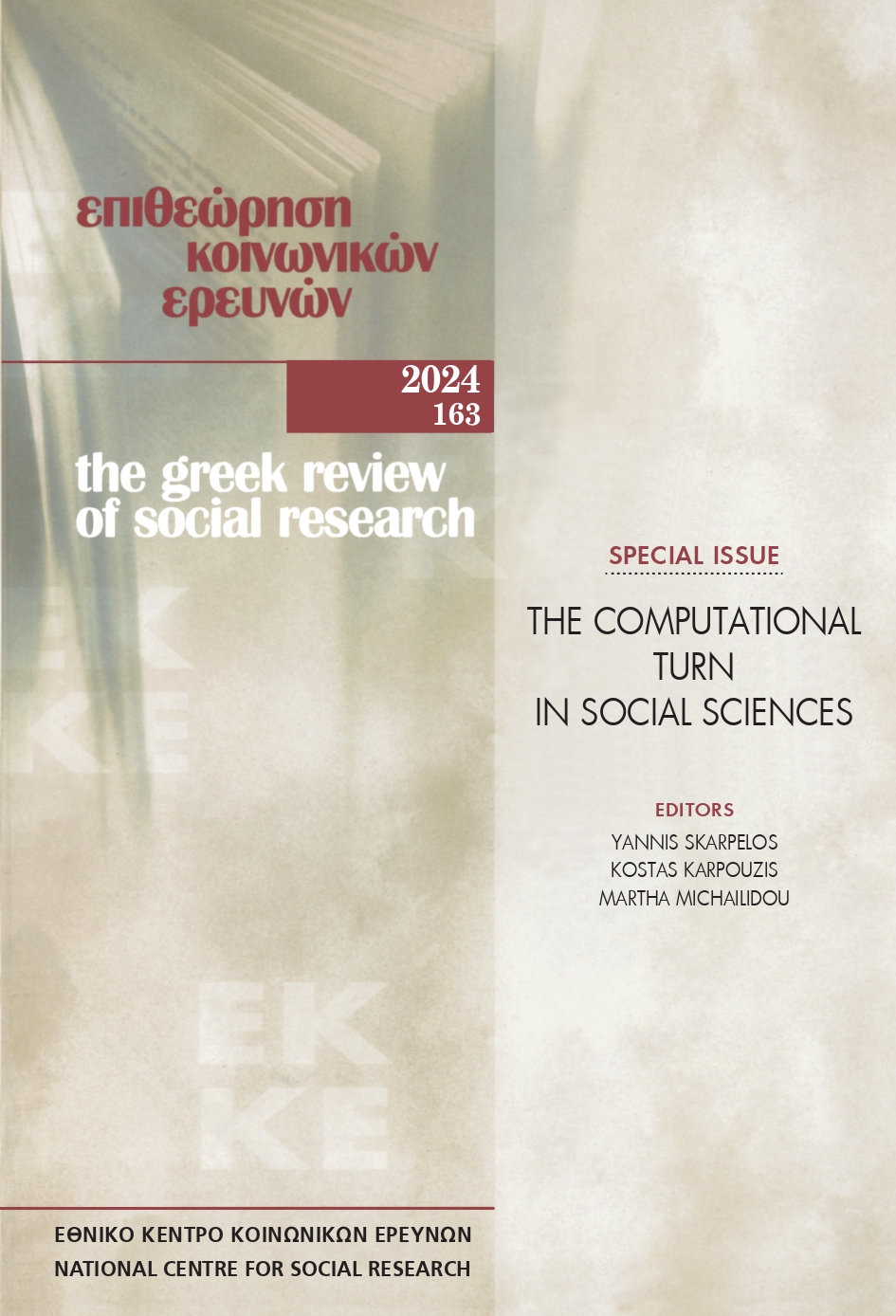The Covid-19 pandemic in Greece through the lens of methodological synergy: Combining corpus linguistics and critical discourse analysis approaches

Abstract
Computational approaches have been increasingly used in social sciences in recent years. The present study investigates to what extent a triangulated framework of corpus linguistics and critical discourse analysis can shed light on cutting-edge approaches and offer new insights into social research. Big data sets that may be examined computationally reveal patterns, trends and co-occurrences of elements (Teubert & Krishnamurthy, 2007, p. 6). This research is based on analysing a 720-text corpus of political and scientific discourse (March 2020 - May 2022) of representatives of three main institutions (government, main opposition party, and Greek public health organisation). Mediated political and scientific discourse has been the primary source of information regarding the Covid-19 pandemic crisis. The computational techniques focus on the representation of the pandemic and the relevant collocations and concordances in an attempt to navigate afterwards through qualitative analysis. Findings indicate that the government constructed a ‘‘rescue narrative’’ while the main opposition party advocated working-class priorities. Conceptual metaphors regarding the pandemic were pervasive both in political and scientific discourse. Comparative studies among different countries could be conducted in the future.
Article Details
- How to Cite
-
Elafropoulos, D. (2024). The Covid-19 pandemic in Greece through the lens of methodological synergy: Combining corpus linguistics and critical discourse analysis approaches. The Greek Review of Social Research, 163, 37–66. https://doi.org/10.12681/grsr.38498
- Section
- Articles

This work is licensed under a Creative Commons Attribution-NonCommercial 4.0 International License.
Authors who publish with this journal agree to the following terms:
- Authors retain copyright and grant the journal right of first publication with the work simultaneously licensed under a Creative Commons Attribution Non-Commercial License that allows others to share the work with an acknowledgement of the work's authorship and initial publication in this journal.
- Authors are able to enter into separate, additional contractual arrangements for the non-exclusive distribution of the journal's published version of the work (e.g. post it to an institutional repository or publish it in a book), with an acknowledgement of its initial publication in this journal.
- Authors are permitted and encouraged to post their work online (preferably in institutional repositories or on their website) prior to and during the submission process, as it can lead to productive exchanges, as well as earlier and greater citation of published work (See The Effect of Open Access).


